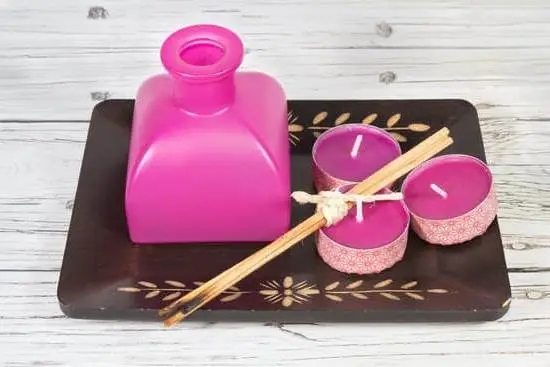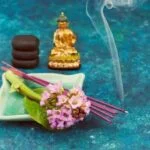Are any essential oils used for aromatherapy? Aromatherapy is a holistic healing treatment that uses natural plant extracts to promote health and well-being. The use of essential oils in aromatherapy has gained popularity due to their therapeutic benefits and pleasant fragrances. In this article, we will explore the world of aromatherapy and essential oils, including their history, uses, benefits, and safety precautions.
Aromatherapy has been around for centuries and is rooted in the use of aromatic plants for medicinal and religious purposes. It has evolved into a popular alternative therapy that harnesses the power of essential oils to improve physical, emotional, and mental health. Essential oils are highly concentrated plant extracts that capture the natural aroma and therapeutic properties of the plant.
What are essential oils used for aromatherapy? Essential oils are commonly used in aromatherapy to promote relaxation, reduce stress, improve sleep quality, alleviate symptoms of anxiety or depression, boost mood, and enhance cognitive function.
These powerful oils can be diffused into the air, inhaled directly from the bottle or added to carrier oils for topical application. Whether you’re looking to unwind after a long day or seeking relief from a specific ailment, there is an essential oil out there for you.
History of Aromatherapy
The history of aromatherapy dates back thousands of years, with the use of essential oils for healing and wellness purposes. Ancient civilizations such as the Egyptians, Greeks, and Chinese used aromatic plant oils for medicinal and spiritual practices. The use of fragrant oils and plants for their therapeutic benefits has been a part of various cultural traditions throughout history.
Ancient Civilizations
In ancient Egypt, essential oils were highly regarded and used in religious ceremonies, as well as for embalming the deceased. The Greeks also incorporated aromatic oils into their medical practices, while the Chinese utilized herbal medicine and aromatics for both physical and emotional well-being.
The Renaissance Period
During the Renaissance period, aromatic plants were used to create perfumes and scented products. The practice of using essential oils gained popularity throughout Europe during this time, leading to the development of modern aromatherapy techniques.
Modern Aromatherapy
The term “aromatherapy” was coined in the 20th century by French chemist René-Maurice Gattefossé. He discovered the healing properties of lavender oil when he used it to treat a burn on his hand. This led to further research on the therapeutic benefits of essential oils, resulting in the establishment of modern aromatherapy as we know it today.
Overall, the history of aromatherapy demonstrates a long-standing tradition of using essential oils for health, wellness, and spiritual purposes. Today, essential oils continue to be an integral part of aromatherapy practices worldwide.
What Are Essential Oils and How Are They Used in Aromatherapy
What Are Essential Oils?
Essential oils are highly concentrated plant extracts that capture the essence of the plant’s fragrance and beneficial properties. These oils are typically extracted through distillation or mechanical methods, resulting in potent and aromatic substances that have been used for centuries for their therapeutic and medicinal purposes.
How Are They Used in Aromatherapy
In aromatherapy, essential oils are used to promote physical, emotional, and psychological well-being. They can be inhaled directly from the bottle, added to a diffuser, or combined with carrier oils for topical application. The molecules in essential oils are believed to interact with the body’s chemistry, affecting heart rate, stress levels, blood pressure, immune function, and more.
The Role of Essential Oils in Aromatherapy
Aromatherapy can help manage symptoms related to stress, anxiety, insomnia, headaches, digestive issues, and various skin conditions. Different essential oils have different properties and can be used alone or in combination to achieve specific therapeutic effects. This holistic approach to healing is becoming increasingly popular as people seek natural alternatives to improve their overall well-being.
Popular Essential Oils for Aromatherapy
Aromatherapy is the use of essential oils to promote physical and emotional well-being. There are many different essential oils used in aromatherapy, each with its own unique properties and benefits. Some of the most popular essential oils for aromatherapy include:
- Lavender: Known for its calming and relaxing properties, lavender oil is often used to reduce stress and anxiety. It can also promote better sleep when used in a diffuser or applied topically.
- Peppermint: Peppermint oil is invigorating and can help improve focus and mental clarity. It is also commonly used to soothe headaches and alleviate nausea.
- Tea Tree: With its antimicrobial properties, tea tree oil is often used to treat skin conditions such as acne and fungal infections. It is also known for its fresh, medicinal scent.
These essential oils are just a few examples of the many options available for aromatherapy. Each oil has its own unique aroma and therapeutic benefits, making it important to choose the right ones based on individual needs and preferences.
In addition to these popular choices, other essential oils commonly used in aromatherapy include eucalyptus, lemon, chamomile, and rosemary. Whether you are looking to uplift your mood, relax after a long day, or alleviate certain health issues, there is likely an essential oil that can meet your specific needs when it comes to aromatherapy.
Benefits of Aromatherapy With Essential Oils
Aromatherapy, the practice of using essential oils for their therapeutic properties, has been gaining popularity for its potential health benefits. Some studies have shown that certain essential oils used in aromatherapy can help reduce anxiety, improve sleep quality, and even alleviate some symptoms of depression. For example, lavender oil is often used to promote relaxation and reduce stress, while peppermint oil may help with headaches and mental clarity.
In addition to its mental health benefits, aromatherapy with essential oils has also been suggested to have physical health benefits. Some essential oils like tea tree oil and eucalyptus oil are known for their antimicrobial properties and are commonly used in aromatherapy to help support the immune system and fight off respiratory infections.
However, it is important to note that more research is needed to fully understand the extent of these benefits and how best to use essential oils for therapeutic purposes.
Furthermore, aside from its potential direct health benefits, aromatherapy with essential oils can also provide a sense of comfort and well-being. The pleasant scents of certain essential oils can create a calming atmosphere and uplift one’s mood. Whether used during massage therapy or in a diffuser at home, the use of essential oils for aromatherapy can contribute to an overall sense of relaxation and contentment.
| Essential Oil | Potential Health Benefits |
|---|---|
| Lavender Oil | Reduces stress and promotes relaxation |
| Peppermint Oil | Improves mental clarity and helps with headaches |
| Tea Tree Oil | Supports the immune system and has antimicrobial properties |
| Eucalyptus Oil | Fights off respiratory infections |
How to Use Essential Oils for Aromatherapy
Essential oils are commonly used in aromatherapy, and there are several methods for using them. The most popular methods include diffusion, inhalation, and topical application.
Diffusers are used to disperse essential oils into the air, allowing their scent to fill a room or space. There are different types of diffusers such as ultrasonic diffusers, nebulizing diffusers, evaporative diffusers, and heat diffusers. Each type of diffuser functions differently but all work to disperse the essential oil into the air.
Inhalation is another common method of using essential oils for aromatherapy. This can be done by adding a few drops of essential oil to a bowl of hot water and inhaling the steam, or by using a personal inhaler. The key is to breathe in the aroma of the oil to experience its therapeutic effects.
Topical application involves applying diluted essential oils directly onto the skin. This can be done through massage, adding a few drops to bathwater, or using skincare products that contain essential oils. When using essential oils topically, it is important to dilute them with a carrier oil to avoid skin irritation or sensitization. Certain essential oils should also be avoided during pregnancy or by individuals with certain health conditions.
| Method | Description |
|---|---|
| Diffusion | Disperses essential oils into the air using different types of diffusers such as ultrasonic, nebulizing, evaporative, or heat. |
| Inhalation | Breathing in the aroma of essential oils through steam or personal inhalers for therapeutic effects. |
| Topical Application | Applying diluted essential oils directly onto the skin through massage, bathwater or skincare products. |
Safety Precautions and Considerations When Using Essential Oils for Aromatherapy
When using essential oils for aromatherapy, it is important to take certain safety precautions into consideration in order to ensure a safe and enjoyable experience. Essential oils are highly concentrated substances that should be handled with care. Here are some safety guidelines and considerations to keep in mind when using essential oils for aromatherapy:
- Always dilute essential oils before applying them to the skin. Direct application of undiluted essential oils can cause irritation or allergic reactions.
- Perform a patch test before using any new essential oil to check for any adverse reactions. Apply a small amount of diluted oil to a small area of skin and monitor for any redness, itching, or swelling.
- Avoid contact with eyes, mucous membranes, and sensitive areas of the body. If accidental contact occurs, rinse the affected area with a carrier oil rather than water.
It is also important to consider the potential interactions of essential oils with certain medical conditions and medications. Some individuals may have allergies or sensitivities to specific essential oils, so it is important to be aware of any pre-existing conditions before using them for aromatherapy.
Lastly, always store essential oils out of reach of children and pets, as ingesting large amounts of certain essential oils can be toxic. Taking these safety precautions will ensure that you can enjoy the benefits of aromatherapy without any negative side effects or complications related to the use of essential oils.
Conclusion
In conclusion, essential oils have had a significant impact on the practice of aromatherapy and on overall well-being. The use of essential oils in aromatherapy dates back to ancient civilizations, and their popularity has only continued to grow due to their numerous therapeutic benefits. From promoting relaxation and reducing stress to alleviating physical discomfort, essential oils have proven to be powerful tools in enhancing both mental and physical health.
The versatility of essential oils allows for various methods of application in aromatherapy, including diffusion, inhalation, and topical use. Each method provides unique benefits, making aromatherapy accessible to a wide range of individuals seeking natural remedies for their well-being. However, it is important for users to exercise caution and adhere to safety precautions when using essential oils to prevent adverse reactions or misuse.
Overall, the impact of essential oils on aromatherapy and overall well-being cannot be understated. With the proper knowledge and care, the incorporation of essential oils into one’s lifestyle can lead to improved emotional balance, mental clarity, and physical wellness. As research on aromatherapy and essential oils continues to expand, it is evident that these natural substances will remain an integral part of holistic health practices for years to come.
Frequently Asked Questions
What Essential Oils Are Safe for Aromatherapy?
Essential oils that are generally considered safe for aromatherapy include lavender, peppermint, tea tree, eucalyptus, and lemon. It’s important to do thorough research and consult with a professional before using any essential oil for aromatherapy, especially if you have any underlying health conditions or are pregnant.
What Oils Are Best for Aromatherapy?
The best oils for aromatherapy will ultimately depend on the individual’s preferences and needs. Some popular choices include lavender for relaxation, peppermint for energy and focus, eucalyptus for respiratory support, and citrus oils like bergamot or sweet orange for mood enhancement. It’s important to choose high-quality oils from reputable sources.
Can You Use Any Essential Oil Brand in a Diffuser?
Not every essential oil brand is suitable for use in a diffuser. It is crucial to use pure, undiluted essential oils that are specifically labeled for aromatherapy or diffusion.
Some essential oil brands may contain additives or synthetic ingredients that can be harmful when vaporized and inhaled. Always read the labels carefully and purchase from trusted suppliers to ensure safety and effectiveness when using a diffuser.

Are you looking for a natural way to improve your health and wellbeing?
If so, aromatherapy may be the answer for you.





